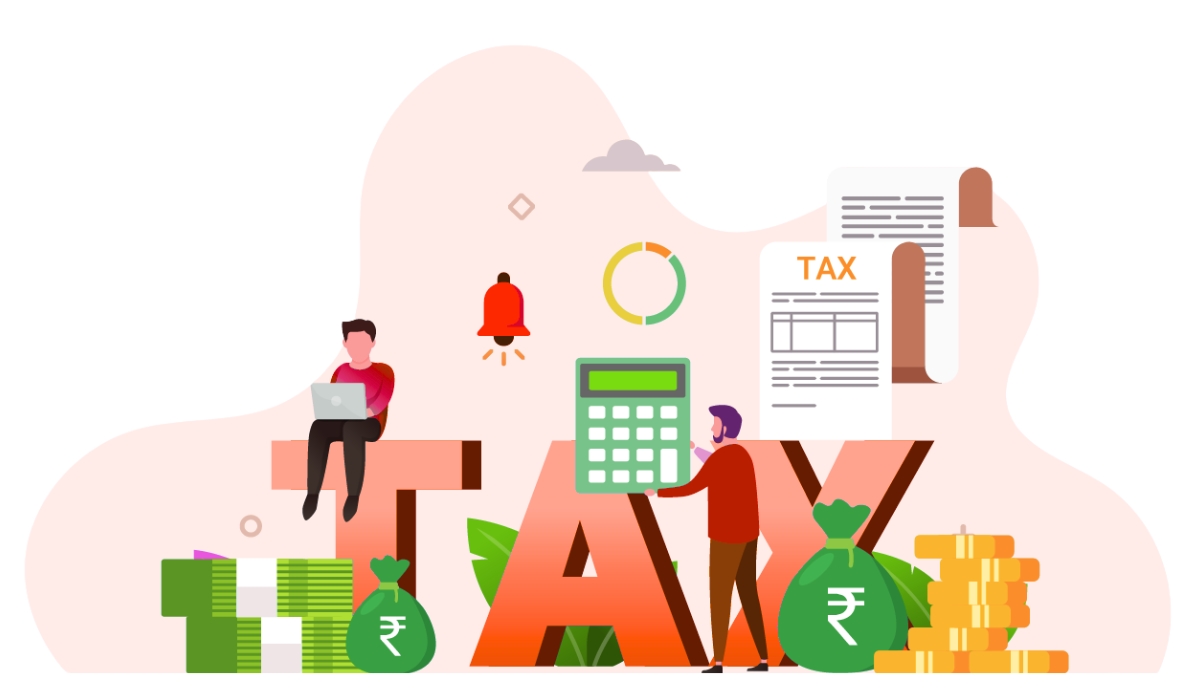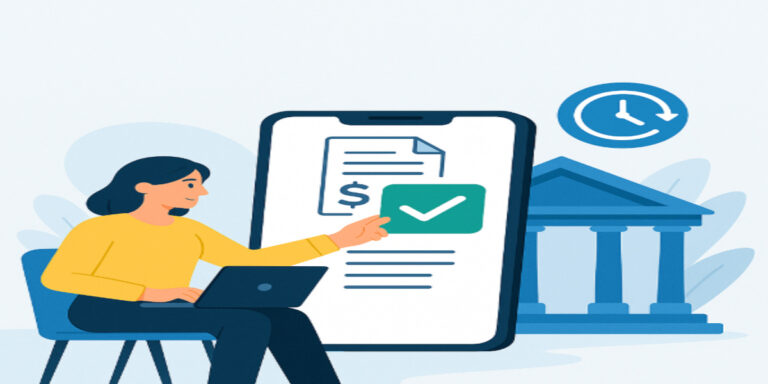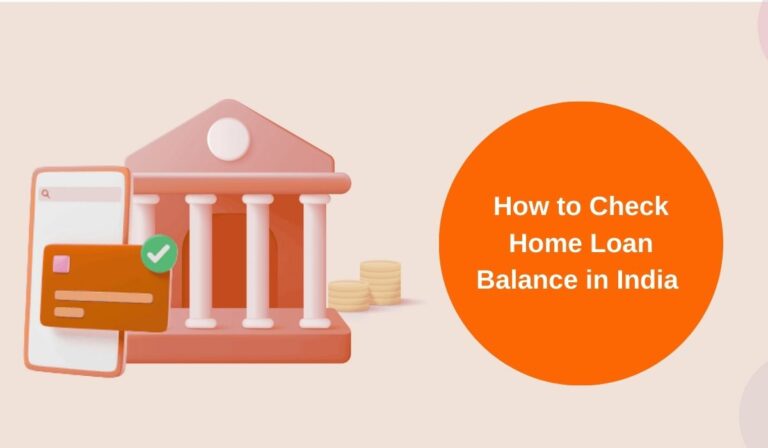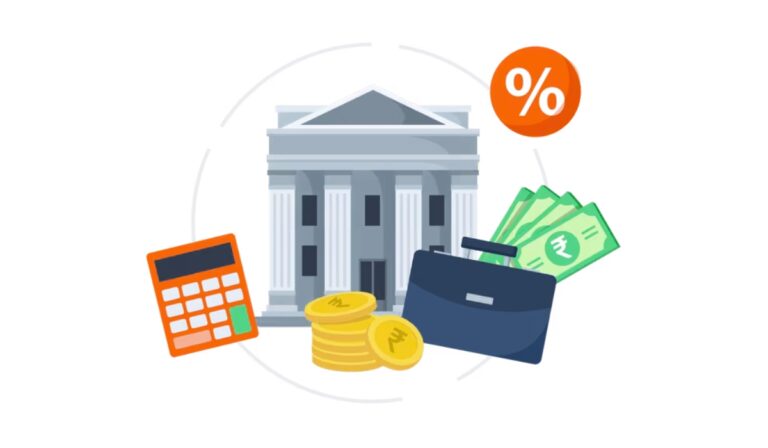Personal loans are a widespread solution for financial needs, whether it be for wedding funds or covering medical emergencies. Personal loans give minimal documentation, quick disbursal, and flexible usage for borrowers. A common misconception about borrowers for personal loans is that they offer tax benefits. But is it true or a myth? We’ll understand the reality of tax benefits in personal loans and clear some common misunderstandings.
Does the Income Tax Act Offer Tax Benefits on Personal Loans?
The Income Tax Act doesn’t provide tax benefits on personal loans, but tax benefits are still available depending on how borrowers use those funds.
1. No deduction for personal loan interest
- Home loans and education loans don’t deduct paid interest from personal loans under the Income Tax Act if the funds are used for personal expenses such as vacations, wedding expenses, or discretionary spending.
- As we discussed earlier, a personal loan is an unsecured loan that doesn’t require any assets or investments. The law of taxation does not offer any exceptions for any paid interest.
2. Tax benefits depend on the usage of funds, not the loan type
If the personal loan may be used for business purposes, investment, and acquiring income for generating assets, interest may be deducted as a claim.
When Can You Claim Tax Benefits on a Personal Loan?
Personal loans generally do not offer tax benefits, but you can claim tax benefits in some special cases, depending on the purpose of taking the loan. Here, we’ll discuss this further.
If used for business purposes
When you use a personal loan for business purposes, you can claim paid interest as a business claim under the Income Tax Act. This will help you in reducing the business tax, ultimately lowering the tax liability.
If used for buying and building a house
When personal is used for buying, constructing, or renovating a house, interest paid can be claimed under Section 24 b of the Income Tax Act.
If used for investing (Capital gains adjustment)
If you used the personal loans for investing in mutual funds, property stocks, then you are eligible for adjusting the interest cost at the time of selling the assets.
If used for education (Indirect benefits)
There is no direct tax deduction available for an education loan, but it indirectly manages your expenses and helps in reducing the liquidate tax-saving investments.
No Tax Benefits in these Scenarios
Tax benefits are not given by all personal loans. In some scenarios, you can’t claim tax benefits on the interest and principal.
Personal loans for vacation, wedding, or shopping
If you take a loan for personal use, like a wedding, shopping, vacation, or retail purposes, then you aren’t eligible for the tax benefits under the Income Tax Act.
Loan for lifestyle expenses
If a loan is taken for luxury purposes, like buying gadgets or a non-asset building purpose. It is termed as personal use. In this case, you can’t claim the tax benefit.
Documentation Required to claim a tax benefit
To get the tax benefits successfully, you have to provide some valid documents that provide the loan usage and purpose. Here we’ll discuss what you need:
Proof of Usage
Required invoices, agreement, or bank statements that can clearly show that the loan applied for is for an eligible purpose like business, home construction, or investment.
Interest Certificate from the lender
Take an interest Certificate from your lender, which shows the total interest paid during the financial year. This certificate is very necessary for claiming the tax deductions.
Segregated business/personal expense report
If a loan is used in half parts for two different purposes, like half part is used for personal use and half part is used for business purposes, then you have to provide a detailed report regarding this to qualify for the tax benefits.
Alternative loans with tax benefits
Many types of loans have specific loan advantages under the Income Tax Act. Here are some key points that help you understand this:
Home loan (Section 80C + 24b)
You can claim:
- Up to ₹1.5 lakh on principal repayment under Section 80C
- Up to ₹2 lakh on interest paid under Section 24(b) for a self-occupied house
Education Loan (Section 80B)
The interest paid on an education loan is fully deductible under Section 80B for 8 years.
Business Loan (expense deduction)
If the loan is taken for business purposes, then you can claim the as a business expense. It helps you reduce the taxable business income.
Conclusion
Personal loans generally don’t offer tax benefits, but you can claim them if you are taking a loan for some specific purposes, like business, home construction, or education. Personal loan tax benefits depend on the purpose of the loan.
Plan your usage properly with proper documentation, such as proof of usage, an interest certificate, and expense reports, to ensure eligibility.
By doing so, you can make the most of potential tax-saving opportunities.
FAQ’S
Q1: Are personal loans eligible for tax deduction?
Personal loans are not directly tax-deductible unless the funds are used for specific purposes like home purchase, business, or investments.
Q2: Can I claim tax benefits if I use a personal loan for home renovation?
Yes, interest paid on a personal loan used for home renovation can be claimed under Section 24(b), subject to limits and documentation.
Q3: Is interest on a personal loan taxable?
No, the interest you pay on a personal loan is not taxable, but also not tax-deductible unless used for qualifying expenses.
Q4: Can I claim a tax benefit on a personal loan used for business expansion?
Yes. If the loan is used for business purposes, the interest paid can be claimed as a business expense while filing income tax returns.
Q5: Is there any section in the Income Tax Act that allows a deduction for personal loans?
No specific section is dedicated to personal loans. However, deductions are allowed based on the purpose of the loan (e.g., Section 24 for home loan interest).
Q6: Do I get tax benefits on personal loans used for medical treatment?
No direct tax benefits are available on personal loans for medical expenses unless you qualify under specific health-related exemptions separately under Section 80D.
Q7: What documents are required to prove loan usage for tax benefits?
You must maintain receipts, invoices, loan agreements, and an interest certificate from the lender to prove the end-use of the loan.
Q8: Can salaried individuals claim tax deductions on personal loan EMIs?
Not usually. Only the interest portion may be deductible—and only when the loan is used for income-generating purposes like home purchase or business.
Q9: Is the principal amount of a personal loan tax-deductible?
No. The principal repayment of a personal loan is not eligible for any tax deduction unless it’s a home loan under Section 80C.
Q10: What if I use a personal loan for investment in stocks or mutual funds?
If the loan is used for investing, the interest paid may be claimed as an expense against capital gains, but consult a tax advisor for exact treatment.
Q11: Are NBFC personal loans also eligible for tax benefits?
Yes, provided the purpose of the loan qualifies under tax rules. It doesn’t matter whether the loan is from a bank or NBFC; usage is key.
Q12: Will taking a personal loan affect my tax liability?
No. A personal loan is not considered income, so it doesn’t add to your taxable income. Only the interest benefit, if applicable, impacts tax calculations.
Q13: Is personal loan interest tax-deductible under 80C?
No. Section 80C allows deductions for specific investments/expenses like PPF, ELSS, or home loan principal, but not personal loan interest.
Also read,
Instant Personal Loan Online Get upto ₹ 20,000
How to Check Personal Loan Balance in India (All Major Banks & NBFCs Covered)
Why CIBIL Score Matters for Personal Loans?
Get a ₹10,000 Loan on Aadhaar Card – Quick Approval & Easy EMI




